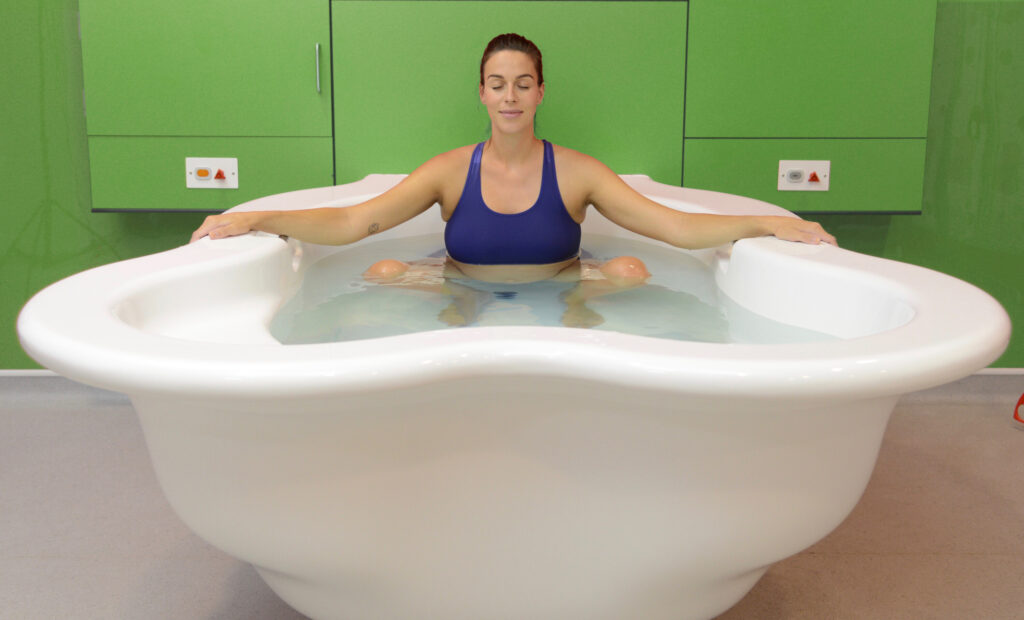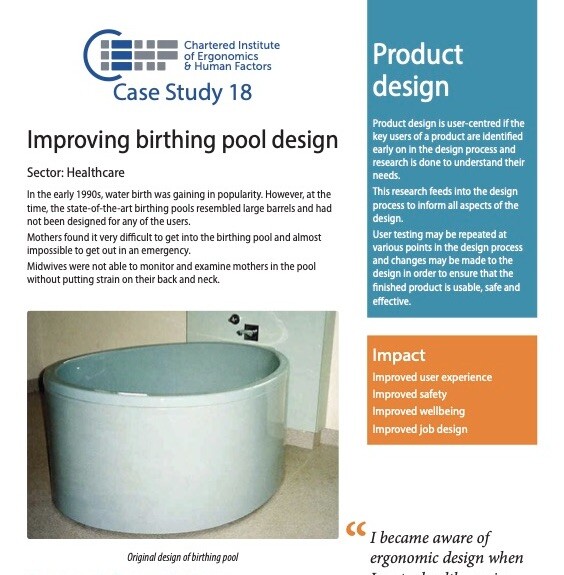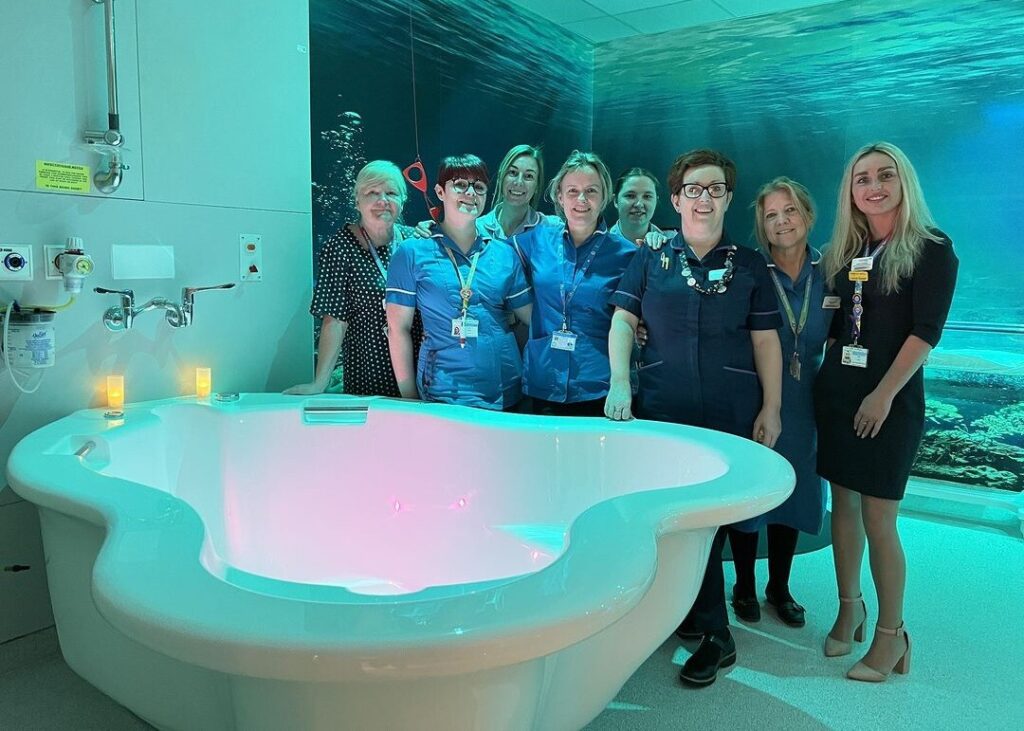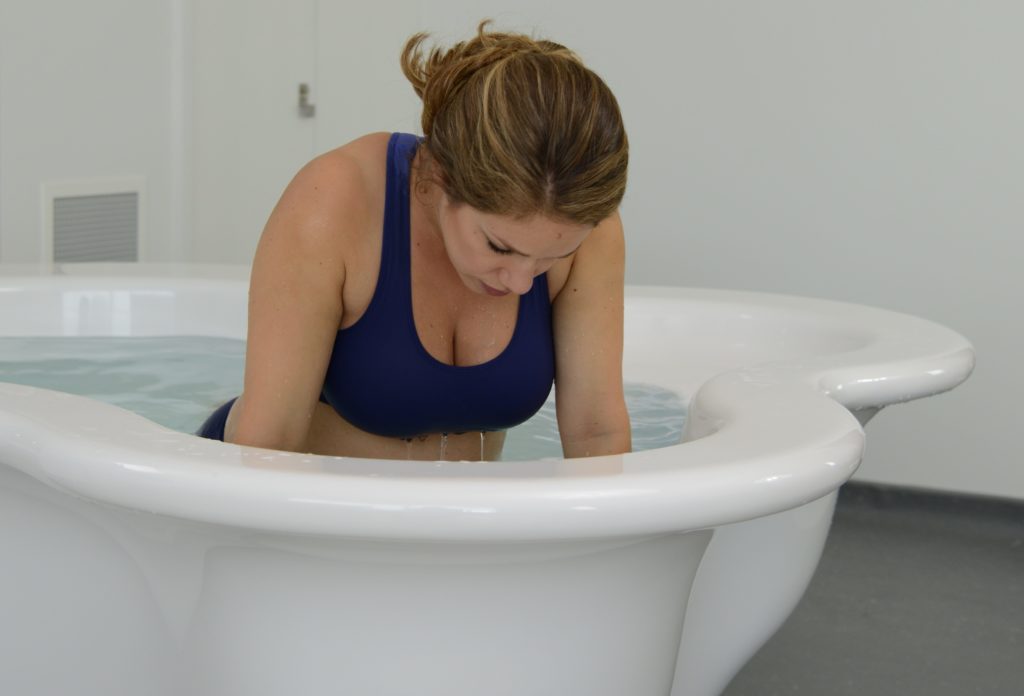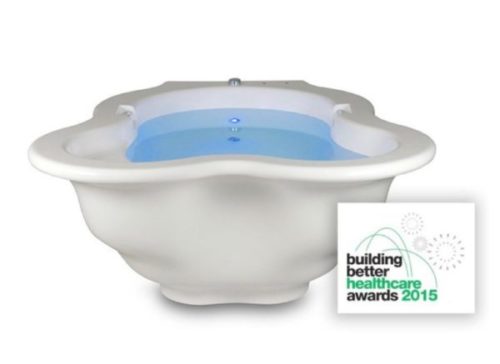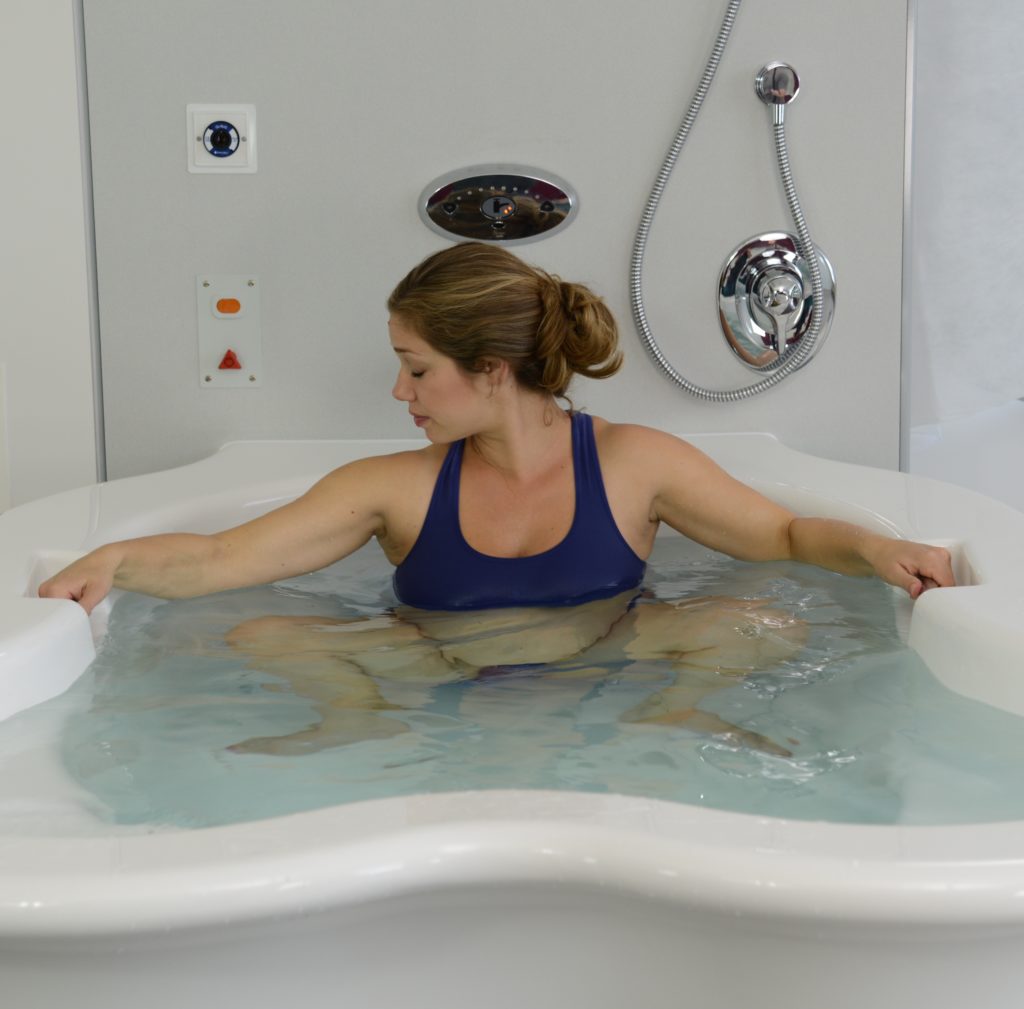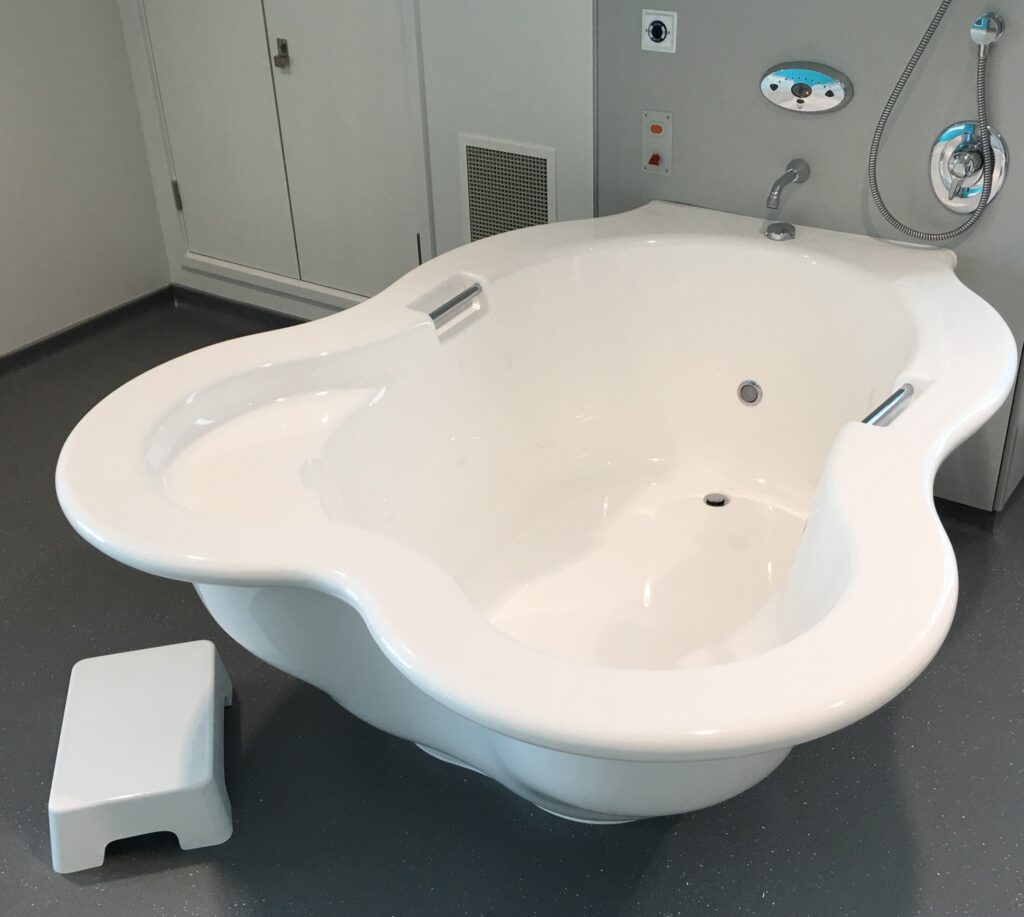Milli Hill explains why more and more women, including celebrities like Maia Dunphy and Rebecca Adlington, are choosing a birth pool.
More and more women are saying yes to water birth; thanks in part to the many celebrities who are extolling it’s virtues, including broadcaster and wife of Johnny Vegas, Maia Dunphy, and Olympic swimmer Rebecca Adlington, both of whom are planning to have their babies in a birth pool in the next few weeks.
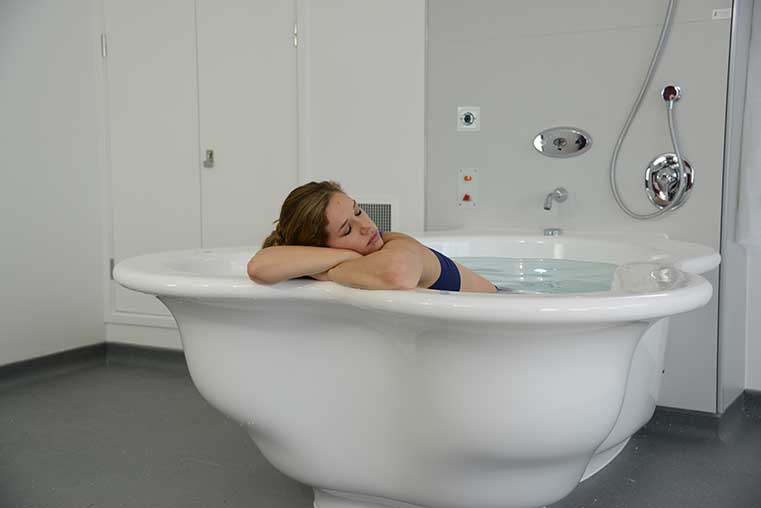
As so many women are discovering, there’s literally nothing not to like about water birth. I’ll admit, though, that when I first heard about the trend in 2007, I was sceptical.
I was pregnant with my first, and maybe I already felt daunted enough by the idea of giving birth, without adding in another whole set of anxieties and ‘unknowns’. I was definitely in the “Why would you do that?” camp.
This scepticism is common, explains Beverley Turner, birth expert and LBC presenter. She used a birth pool in all three of her own births and now encourages pregnant women on her London based antenatal course, The Blooming Bunch, to give it a try:
“It’s hard to explain the benefits of water birth in words. You can read all about how it’s great for pain relief, how it helps you to move and find comfortable positions, how it supports the perineum and can prevent tearing, and how it makes your chances of a normal, natural birth more likely.
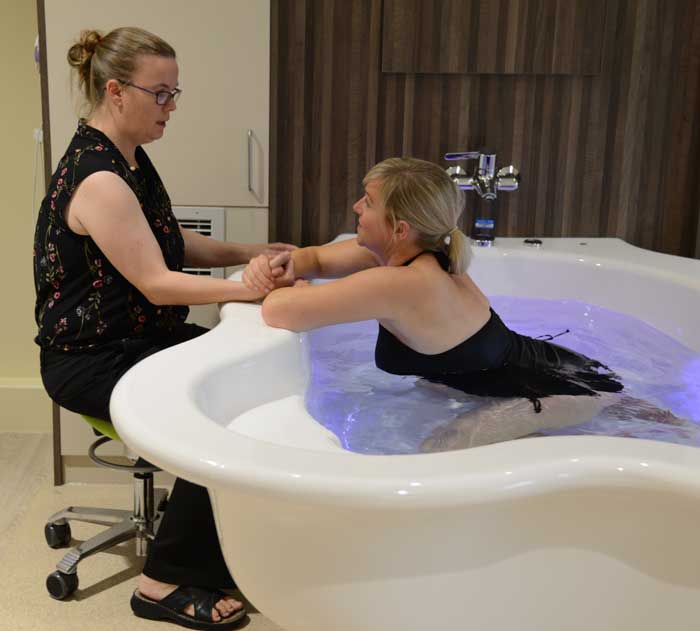
But ultimately, this can all seem academic – it’s only when you slide your labouring body into the warm water that you really ‘get’ it.”
Water birth is often spoken of in terms of being a ‘pain relief option’, but I’m not sure – having finally let my scepticism be washed away during the birth of my second child – that this entirely does it justice. It’s true, when you get into the pool, the warmth and the weightlessness seems to ‘take the edge’ off the contractions.
Research supports the idea that being in water helps with labour pain: one study found that water birthing mums rated their pain as not only lower than women giving birth on dry land but lower than land birthers who had had epidurals.
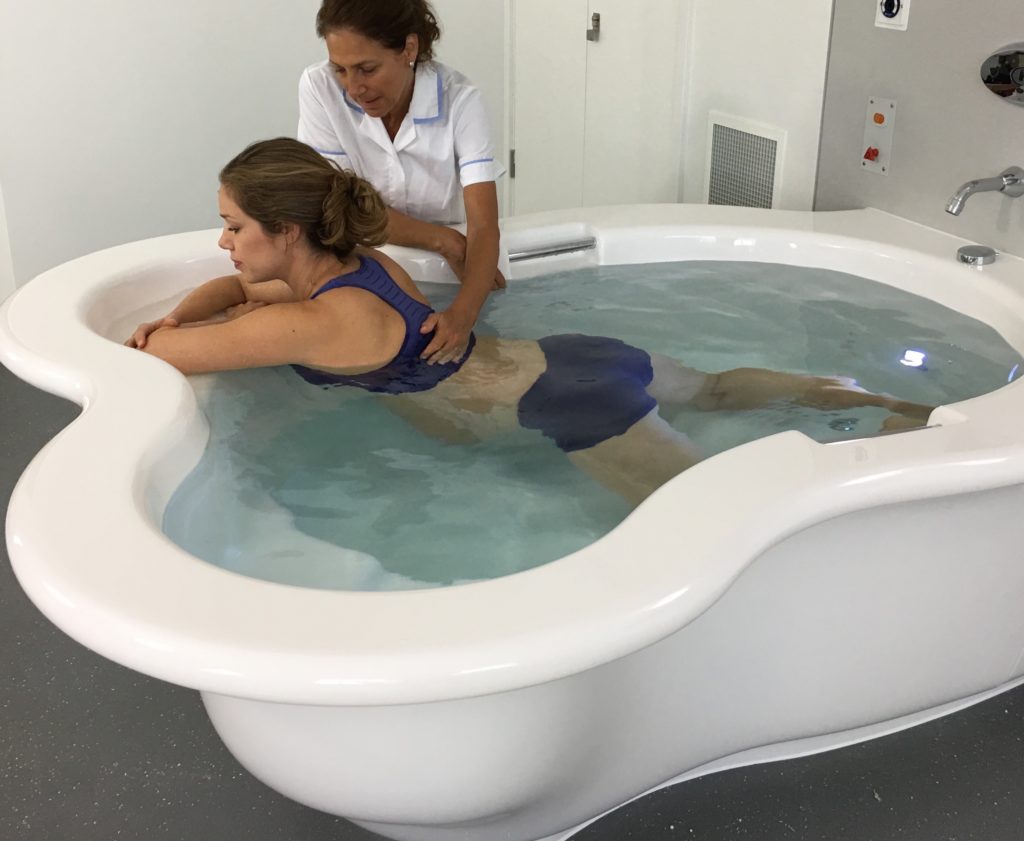
Another study, however, found that there was no difference in pain levels between women giving birth in water or on dry land. If you’re pregnant I’m sorry to have to break the news that, no matter where women in the study gave birth, their general view seemed to be: It Hurts.
However – and this is where it gets interesting – what the researchers did find was that the water birthers remembered birth as less painful, once it was over.
I think this shines a light on the aspect of water birth that so often gets missed – perhaps because it is hard to measure or quantify: women’s experience.
Women who have water births – whilst they may still feel as much pain as their contemporaries on the bed – enjoy their births more. Yes, you heard correctly, whilst it may or may not ‘hurt’ – they enjoy it.
In these times of increasingly high medical intervention in birth, water birth removes you from this stereotypical ‘one born every minute’ reality. You are – quite literally – in a different element. You are upright, active, mobile and out of easy reach – the absolute opposite of being immobilised on your back on a bed.
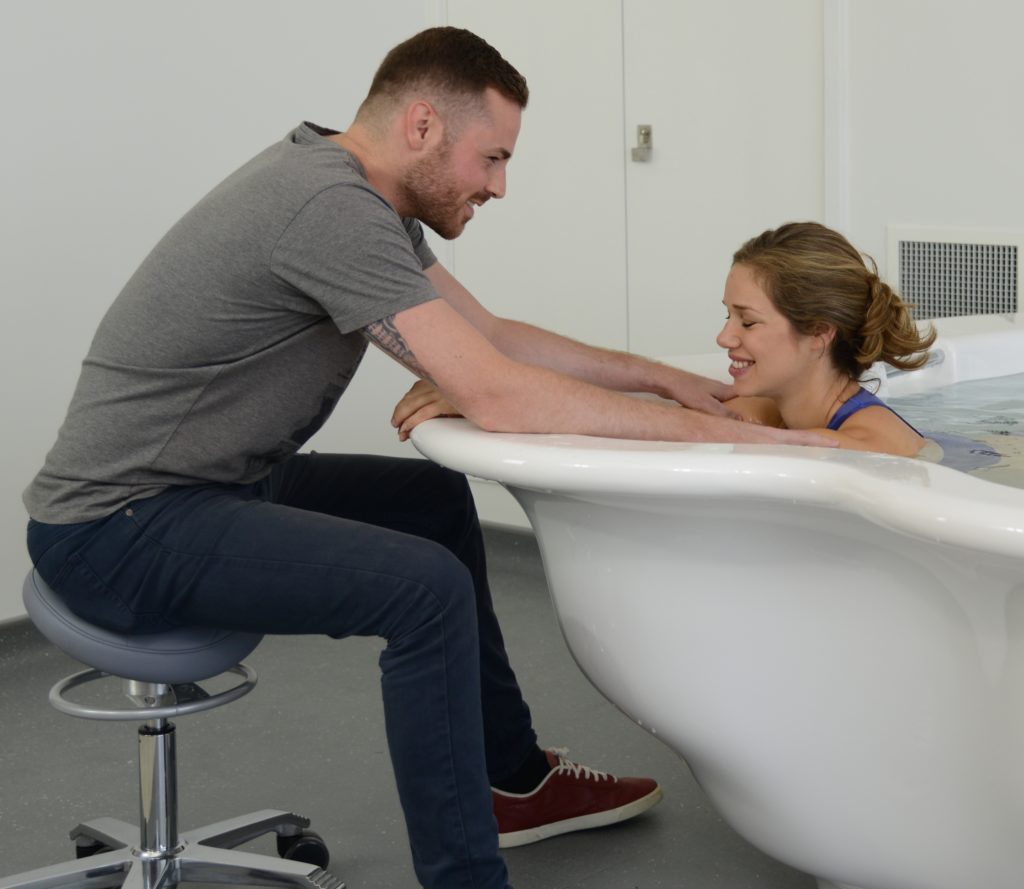
The balance of power in the birth room, for several decades at least tipped strongly in favour of the midwives and doctors, is upended. We try to explain why women enjoy it so much by saying, “It’s great for pain relief”, but the real reason is this: water birth puts women back in charge.
“The most amazing thing was that I was in my own space, with no invaders”, Hannah Roe, a midwife who gave birth in water last November told me. “I called all the shots, it really felt like my territory. Midwives could only listen in when I truly consented (ie floated over to them!) and birth was completely ‘hands off’.
“Aside from the encouragement of my midwives and birth supporters I did it all by myself – touched his head to reassure myself that my cervix was fully dilated and lifted him out of the pool following the birth. It was amazing.”
Birth workers themselves are often fans of water birth. As Sarah Dodge, a student midwife at Kingston University told me, “I absolutely love caring for women who choose water, it allows you to do absolutely nothing apart from watch and listen.
I have learnt so much from doing this.” Doula Claire Morrow-Goodman is equally evangelical: “I love it when a mama-to-be slowly sinks down into the water and that wonderful blissful look that enraptures her face…as a doula I sigh with her”, she told me.
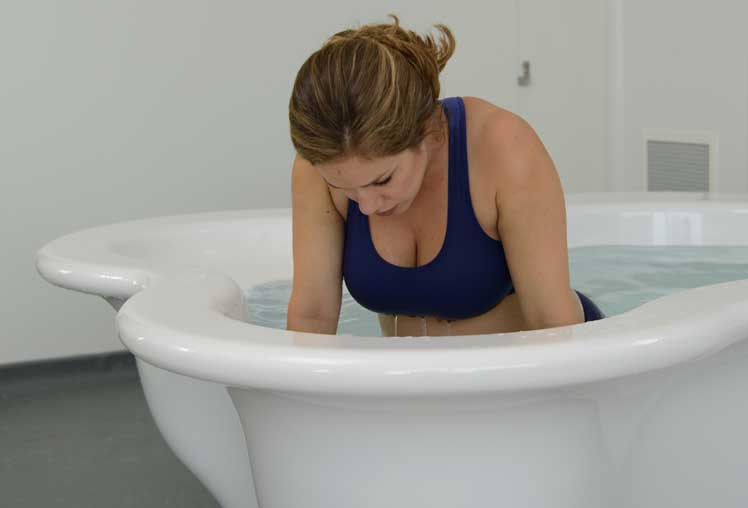
However, there are opponents – in April 2014 the American Congress of Obstetricians and Gynaecologists and the American Academy of Pediatrics issued a joint statement, denouncing water birth as without benefits and potentially unsafe.
This statement has made access to water birth more limited in the USA, although the Royal College of Midwives called it ‘disappointingly biased and partially incorrect’, and researcher Rebecca Dekker has written a review of the available literature on water birth in response, concluding the ACOG statement contained, “major scientific errors”.
Dekker’s review makes fascinating reading for anyone interested in the research on water birth. If you want the short version, however, the basics are this: there is no strong evidence against water birth for low risk women, and more research would be helpful.

